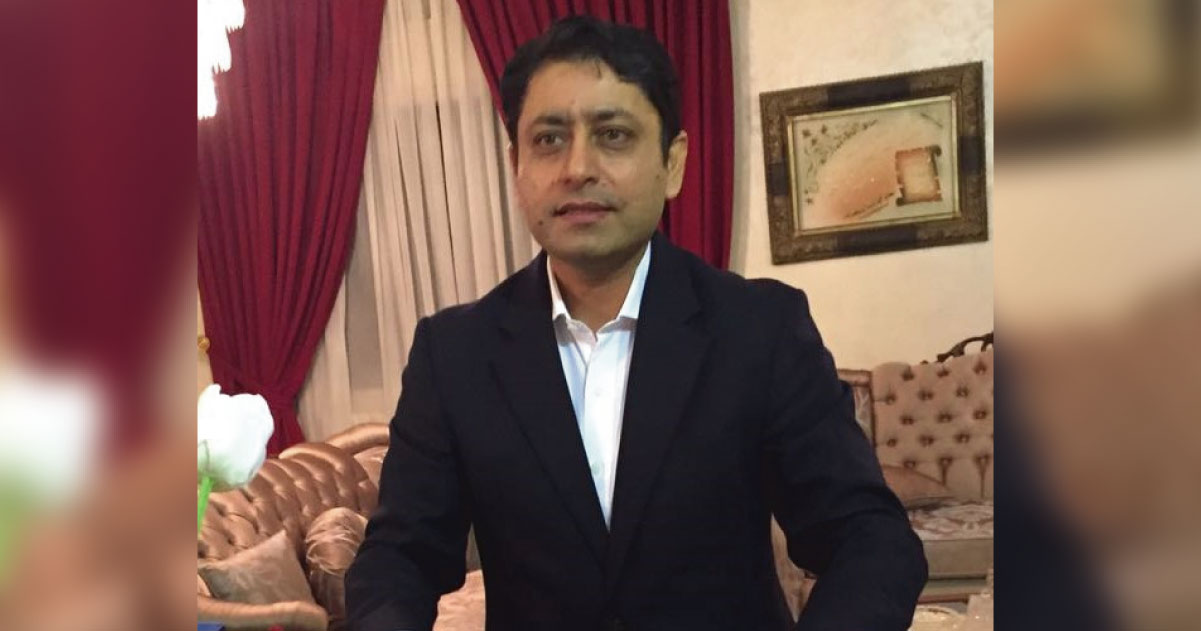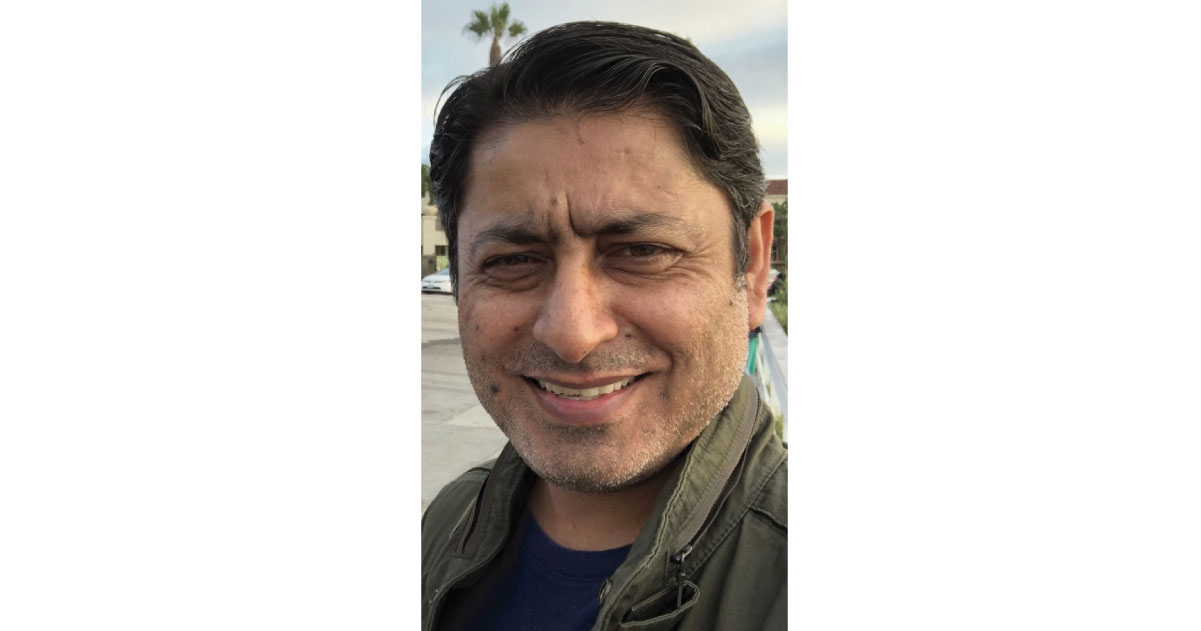

What does it take to retain talent from among the millennials? This is the question whose answer is being sought by Muhammad Ali Jaleel at the Graduate School of Management (GSM) of Management and Science University (MSU).
An international student on the Doctor of Philosophy (Management/Business) programme at MSU’s GSM, Muhammad Ali is returning to the classroom from the boardroom of corporate business. He had begun his professional career with some of the world’s biggest multinational companies – Microsoft, Apple, and Dell among them – after completing Bachelor’s and Master’s degree studies in the US. His latest post as Chairman and CEO for the Philips Group of Companies in Malaysia and his native Pakistan bases him in Kuala Lumpur.
Being responsible for large teams where new hires are constantly secured from members of the Generation Y, Muhammad Ali is constantly challenged in talent retention. At the core of his research on the Doctor of Philosophy (Management/Business) programme at MSU is the finding out of reasons for the leaving and possible remedial actions. Across the multi-variables is an emphasis on the corporate social responsibility stance of an organization; seemingly an important element to a Gen-Y-er concerned with sustainable development.
“It has been hard to do justice to my PhD while holding a full-time role and managing a big organization with hundreds of people working under my care in multiple countries. I try to dedicate as much of my weekends and holidays to fulfil the demands of a PhD undertaking, but I’m learning that it is a full-time job requiring total and complete dedication. In an ideal world I would have preferred to take a few years off from work and dedicate it fully to the pursuance of a PhD degree,” says Muhammad Ali.
Yet he is also lucky, he says, to find Management and Science University (MSU) meeting his requirements. Given his professional commitments against the simultaneous desire to pursue a PhD, there were elements Muhammad Ali had to consider when choosing an institution of higher education; among them, reputation, international affiliations, and the facility of flexible learning.
“MSU makes returning to learning after almost a quarter century a pleasant and a very enjoyable experience. Visiting the campus and seeing so many young people is equally rewarding. It gives me a lot of energy and motivation, and is nostalgic of my own time in college,” he continues.

Management and Science University (MSU) is the first international university to have been accredited by Japan’s Alliance for Business Education and Scholarship for Tomorrow (ABEST). Besides the Management/Business programme of Muhammad Ali’s PhD undertaking, also provided by MSU’s Graduate School of Management (GSM) is Accounting/Finance as Master by Research as well as PhD. Other programmes at Master’s level are Management, Business Administration, Fashion Business, International Hospitality and Tourism Management, Educational Management and Leadership, and the Teaching of English as a Second Language (TESL).
Classes are run during the day and at night, weekdays as well as weekends, face-to-face and online in blended mode, at the main MSU Campus in Shah Alam Section 13 and at the KL Sentral travel hub in Kuala Lumpur. Science/computing/engineering-based postgraduate programmes are offered at MSU’s School of Graduate Studies (SGS).
Another revelation to Muhammad Ali has been the difference between how things are done in academia compared with the corporate world.
“What are important to the former, such as meticulous methodology, adhering to nomenclature, styling and formatting of your research reports, all contrast with the corporate sole focus on monetizing products and/or solutions. Being so tuned-in to corporate ways, I find the transition not easy to handle.”
Still, having reached professional heights that new graduates with career ambitions set for themselves, Muhammad Ali Jaleel is determined on going the full circle.
“I’d like to teach once I am done with my corporate career as I believe I can add a lot of value with real-life examples on business challenges, strategies, and ethics, for example. Practical experience matters because things can be hugely different from theory. I strongly feel that even non-research-based postgraduate programmes, be them technical or business, need at least three to five years of prior experience before being embarked on. Education is the greatest gift anyone can give, and I’m grateful for mine. Having been born privileged in a country where most others struggle to make ends meet, it’s time to give back.”
Flexibility for the lifelong learner
Responding to remote in a trying time
Watch ‘Blended Learning at MSU’ on MSUtv:
MSU Bachelor in Human Capital Management (Hons)
MSU Diploma in Human Capital Management
What does it take to retain talent from among the millennials? This is the question whose answer is being sought by Muhammad Ali Jaleel at the Graduate School of Management (GSM) of Management and Science University (MSU).
An international student on the Doctor of Philosophy (Management/Business) programme at MSU’s GSM, Muhammad Ali is returning to the classroom from the boardroom of corporate business. He had begun his professional career with some of the world’s biggest multinational companies – Microsoft, Apple, and Dell among them – after completing Bachelor’s and Master’s degree studies in the US. His latest post as Chairman and CEO for the Philips Group of Companies in Malaysia and his native Pakistan bases him in Kuala Lumpur.
Being responsible for large teams where new hires are constantly secured from members of the Generation Y, Muhammad Ali is constantly challenged in talent retention. At the core of his research on the Doctor of Philosophy (Management/Business) programme at MSU is the finding out of reasons for the leaving and possible remedial actions. Across the multi-variables is an emphasis on the corporate social responsibility stance of an organization; seemingly an important element to a Gen-Y-er concerned with sustainable development.
“It has been hard to do justice to my PhD while holding a full-time role and managing a big organization with hundreds of people working under my care in multiple countries. I try to dedicate as much of my weekends and holidays to fulfil the demands of a PhD undertaking, but I’m learning that it is a full-time job requiring total and complete dedication. In an ideal world I would have preferred to take a few years off from work and dedicate it fully to the pursuance of a PhD degree,” says Muhammad Ali.
Yet he is also lucky, he says, to find Management and Science University (MSU) meeting his requirements. Given his professional commitments against the simultaneous desire to pursue a PhD, there were elements Muhammad Ali had to consider when choosing an institution of higher education; among them, reputation, international affiliations, and the facility of flexible learning.
“MSU makes returning to learning after almost a quarter century a pleasant and a very enjoyable experience. Visiting the campus and seeing so many young people is equally rewarding. It gives me a lot of energy and motivation, and is nostalgic of my own time in college,” he continues.

Management and Science University (MSU) is the first international university to have been accredited by Japan’s Alliance for Business Education and Scholarship for Tomorrow (ABEST). Besides the Management/Business programme of Muhammad Ali’s PhD undertaking, also provided by MSU’s Graduate School of Management (GSM) is Accounting/Finance as Master by Research as well as PhD. Other programmes at Master’s level are Management, Business Administration, Fashion Business, International Hospitality and Tourism Management, Educational Management and Leadership, and the Teaching of English as a Second Language (TESL).
Classes are run during the day and at night, weekdays as well as weekends, face-to-face and online in blended mode, at the main MSU Campus in Shah Alam Section 13 and at the KL Sentral travel hub in Kuala Lumpur. Science/computing/engineering-based postgraduate programmes are offered at MSU’s School of Graduate Studies (SGS).
Another revelation to Muhammad Ali has been the difference between how things are done in academia compared with the corporate world.
“What are important to the former, such as meticulous methodology, adhering to nomenclature, styling and formatting of your research reports, all contrast with the corporate sole focus on monetizing products and/or solutions. Being so tuned-in to corporate ways, I find the transition not easy to handle.”
Still, having reached professional heights that new graduates with career ambitions set for themselves, Muhammad Ali Jaleel is determined on going the full circle.
“I’d like to teach once I am done with my corporate career as I believe I can add a lot of value with real-life examples on business challenges, strategies, and ethics, for example. Practical experience matters because things can be hugely different from theory. I strongly feel that even non-research-based postgraduate programmes, be them technical or business, need at least three to five years of prior experience before being embarked on. Education is the greatest gift anyone can give, and I’m grateful for mine. Having been born privileged in a country where most others struggle to make ends meet, it’s time to give back.”
Flexibility for the lifelong learner
Responding to remote in a trying time
Watch ‘Blended Learning at MSU’ on MSUtv:
MSU Bachelor in Human Capital Management (Hons)
MSU Diploma in Human Capital Management